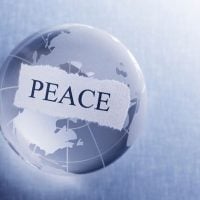The World Bank Group stands as a pivotal institution in the global landscape, dedicated to reducing poverty and fostering sustainable development. Established in 1944, it comprises five distinct entities, each with its own focus and operational strategies. The primary goal of the World Bank is to provide financial and technical assistance to developing countries, enabling them to implement projects that can lead to economic growth and improved living standards.
By offering loans, grants, and expert advice, the World Bank Group plays a crucial role in shaping policies and programs that address the multifaceted challenges faced by nations around the world. In recent years, the World Bank has increasingly emphasized the importance of collaboration with local governments, civil society, and private sector stakeholders. This approach not only enhances the effectiveness of its interventions but also ensures that the needs and aspirations of the communities served are at the forefront of development initiatives.
As global challenges such as climate change, inequality, and health crises continue to evolve, the World Bank Group remains committed to adapting its strategies to meet these pressing issues head-on. By leveraging its extensive resources and expertise, the institution aims to create a more equitable and sustainable future for all.
Support for Sub-Saharan Africa
Investing in Key Sectors
The World Bank Group has long recognized the potential of Sub-Saharan Africa, with its diverse cultures, rich resources, and significant growth opportunities. To drive economic development, the World Bank has invested heavily in various sectors, including agriculture, education, health, and infrastructure.
Empowering Local Communities
Initiatives aimed at improving agricultural productivity have not only increased food security but have also empowered local farmers by providing them with access to modern techniques and markets. The “Africa Climate Business Plan” is a notable example of the World Bank’s impact in Sub-Saharan Africa, mobilizing investments in climate-resilient infrastructure to address the urgent need for sustainable development and tackle the effects of climate change.
Fostering Economic Resilience and Sustainability
By working closely with African governments and stakeholders, the World Bank is helping to create a framework that supports green investments and fosters economic resilience. Such projects not only contribute to environmental sustainability but also generate jobs and stimulate local economies, showcasing the interconnectedness of development goals.
Assistance to South Asia
In South Asia, the World Bank Group has been instrumental in addressing some of the most pressing development challenges faced by countries in the region. With a population exceeding 1.8 billion people, South Asia is characterized by significant disparities in income, education, and health outcomes. The World Bank’s approach in this region focuses on inclusive growth, aiming to lift millions out of poverty while ensuring that no one is left behind.
Key areas of intervention include enhancing access to quality education, improving healthcare systems, and promoting gender equality. A prime example of successful intervention is the “National Rural Livelihoods Mission” in India, which aims to reduce poverty by promoting self-employment and organization of rural poor into self-help groups. This initiative has empowered women and marginalized communities by providing them with skills training and access to financial services.
The World Bank’s support has been crucial in scaling up this program, demonstrating how targeted assistance can lead to transformative change at the grassroots level. By fostering local entrepreneurship and enhancing livelihoods, such initiatives contribute not only to economic growth but also to social cohesion within communities.
Funding for Latin America and the Caribbean
The World Bank Group’s engagement in Latin America and the Caribbean reflects its commitment to addressing regional disparities and promoting sustainable development. This region faces unique challenges, including high levels of inequality, vulnerability to natural disasters, and economic volatility. The World Bank has tailored its strategies to meet these challenges head-on by investing in infrastructure projects, social programs, and environmental sustainability initiatives.
For instance, funding for renewable energy projects has been a significant focus, as countries seek to transition towards greener economies while ensuring energy access for all. One exemplary project is the “Sustainable Energy for All” initiative in Brazil, which aims to expand access to clean energy sources for underserved communities. By providing technical assistance and financing for renewable energy projects, the World Bank is helping Brazil reduce its carbon footprint while simultaneously improving energy security.
This initiative not only addresses environmental concerns but also enhances economic opportunities for local populations. The success of such projects underscores the importance of aligning development goals with environmental sustainability in Latin America and the Caribbean.
Projects in East Asia and the Pacific
East Asia and the Pacific represent a dynamic region characterized by rapid economic growth and significant development challenges. The World Bank Group has played a vital role in supporting countries in this region as they navigate issues such as urbanization, environmental degradation, and social inequality. By focusing on innovative solutions and partnerships, the World Bank aims to foster sustainable development that benefits all segments of society.
Key areas of intervention include infrastructure development, disaster risk management, and social protection programs. A noteworthy example is the “Urban Resilience Program” implemented in Indonesia, which seeks to enhance cities’ ability to withstand natural disasters while promoting sustainable urban development. Through investments in infrastructure improvements and community engagement initiatives, this program aims to create resilient urban environments that can adapt to climate change impacts.
The World Bank’s collaboration with local governments and communities has been instrumental in ensuring that these projects are tailored to meet specific needs while fostering long-term sustainability.
Initiatives in the Middle East and North Africa
The Middle East and North Africa (MENA) region faces a complex array of challenges, including political instability, economic disparities, and social unrest. The World Bank Group recognizes the importance of addressing these issues through targeted interventions that promote stability and development. In this region, efforts have focused on enhancing economic opportunities for youth, improving governance structures, and fostering inclusive growth.
By investing in education and job creation initiatives, the World Bank aims to empower individuals and communities while promoting social cohesion. One significant initiative is the “MENA Youth Employment Initiative,” which seeks to address high youth unemployment rates by providing skills training and job placement services. This program not only equips young people with essential skills but also fosters entrepreneurship by supporting small businesses.
The World Bank’s commitment to engaging with local stakeholders ensures that these initiatives are responsive to the unique needs of each country within the MENA region. By prioritizing youth empowerment and economic inclusion, the World Bank is contributing to a more stable and prosperous future for all. In conclusion, the World Bank Group’s multifaceted approach to development across various regions highlights its commitment to addressing global challenges through targeted interventions.
By focusing on collaboration with local stakeholders and tailoring strategies to meet specific needs, the institution plays a crucial role in fostering sustainable development worldwide. As it continues to adapt its strategies in response to evolving challenges, the World Bank remains a key player in shaping a more equitable future for all nations.








































